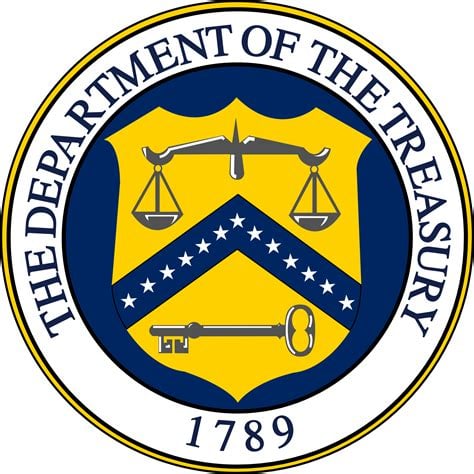What differences are there between the majority of Christians and Puritans? Are there major doctrinal differences? Where did they come from and what are their origins?
The Origins of the Puritans
The Puritans had a considerably large church in the 16th, 17th and 18th centuries in Europe and are still around to this day. This group included but was not limited to English Calvinists. They were so named because they were seen as extremists as they were an irritant to the Church of England. Still other historians believe they were named from the purity of their worship and their doctrinal beliefs. Prohibited by English laws to change the established Church of England and encumbered by England from freely practicing religion in their own way, they were angered that the Reformation didn’t penetrate the Church of England enough nor did they see any real reformation from within. They felt that the Church of England was still too much tied to Rome. Since the Puritans believed in and taught a Reformed theology and the Church of England had undergone little reformation, the relationship between them and the Church of England began to deteriorate. The Puritans began to spread outside of England into Europe and later into the American Colonies. The Puritans were largely a product of the Reformation and a rejection of the Roman Catholic Church.
Significant Puritan Contributions
Both America and England are indebted to the Puritans because they authored the constitutional framework of many of the freedoms that we take for granted today. The concepts of individual rights, citizen liberties, and laws protecting the common people were constructed by the Puritans. They were the first to advocate the need for public schools in America as well as the first colleges on American soil. The social morals were deemed foundational necessities for nations to survive and that a democratic form of government was essential for a free nation. The Puritan’s Massachusetts Bay Colony was formed by their being forced out of England and Holland. They were called separatists partly from seeking separation from England and their tyrannical laws but also from the Church of England’s ever tightening restrictions of religious freedom. The Puritans also believed that the Church of England was so corrupt that they actively sought to distance themselves which may be another reason why they were called separatists.
Puritans Doctrinal Beliefs
The Puritans are essentially Protestant and were formed to break free from the Church of England which was still too closely tied to the church at Rome. They wanted the Bible to be accessible to the common man and not be read only by the clergy and especially in Latin. They wanted the Bible to be available in the common language. The Puritans held firm on the essentials of the faith that most Christians hold to today. Puritans taught and strived for personal piety and moral purity and strived to live down to the most finite of biblical teachings and details. Like most churches today, they believed that their purpose was to glorify God, to do the will of God, and that by doing so, they could assure themselves of eternal life. Theirs was not a works-based salvation really but more of a by-product of a person being saved. The Puritans had a good sense of the importance of the family to society and taught that strong families that had a firm foundation of biblical principles would best serve a society in which it resided.
If you came up to a Puritan in the 1700’s and came up to one today and asked them these questions; do you believe that Jesus is God, and that He is the Son of God, that He lived a sinless life and died on the cross so that believers could be saved, they would say yes. They would likely frown on today’s society in the sense that there is little visible evidence of the Christian heritage and foundation of this nation that long ago served it so well.
Conclusion
God calls us to lead a pure life and to strive for holiness. Of course, humans cannot live without sin but we can live by sinning less than a lost and dying world. We are to strive for holiness even though we will never achieve it in this life. Thankfully, the good news is that “For our sake [God] made [Jesus] to be sin who knew no sin, so that in him we might become the righteousness of God” (2 Cor 5:21) for “Whoever believes in the Son has eternal life [but] whoever does not obey the Son shall not see life, but the wrath of God remains on him” (John 3:36). Most people don’t realize that “God did not send his Son into the world to condemn the world, but in order that the world might be saved through him. Whoever believes in him is not condemned, but whoever does not believe is condemned already, because he has not believed in the name of the only Son of God” (John 3:17-18). You either have your sins paid for by Christ by repenting and trusting in Him or you pay for your own sins for all eternity. Since no human can ever pay for their own sins, that is why they will be hell-bound for all eternity but fortunately, “The Lord is not slow to fulfill his promise as some count slowness, but is patient toward you, not wishing that any should perish, but that all should reach repentance” (2 Pet 3:9). There is still yet time today but tomorrow may be too late (2 Cor 6:2).
Another Reading on Patheos to Check Out: What Did Jesus Really Look Like: A Look at the Bible Facts
 Article by Jack Wellman
Article by Jack Wellman
Jack Wellman is Pastor of the Mulvane Brethren church in Mulvane Kansas. Jack is also the Senior Writer at What Christians Want to Know whose mission is to equip, encourage, and energize Christians and to address questions about the believer’s daily walk with God and the Bible. You can follow Jack on Google Plus or check out his book Blind Chance or Intelligent Design available on Amazon.











